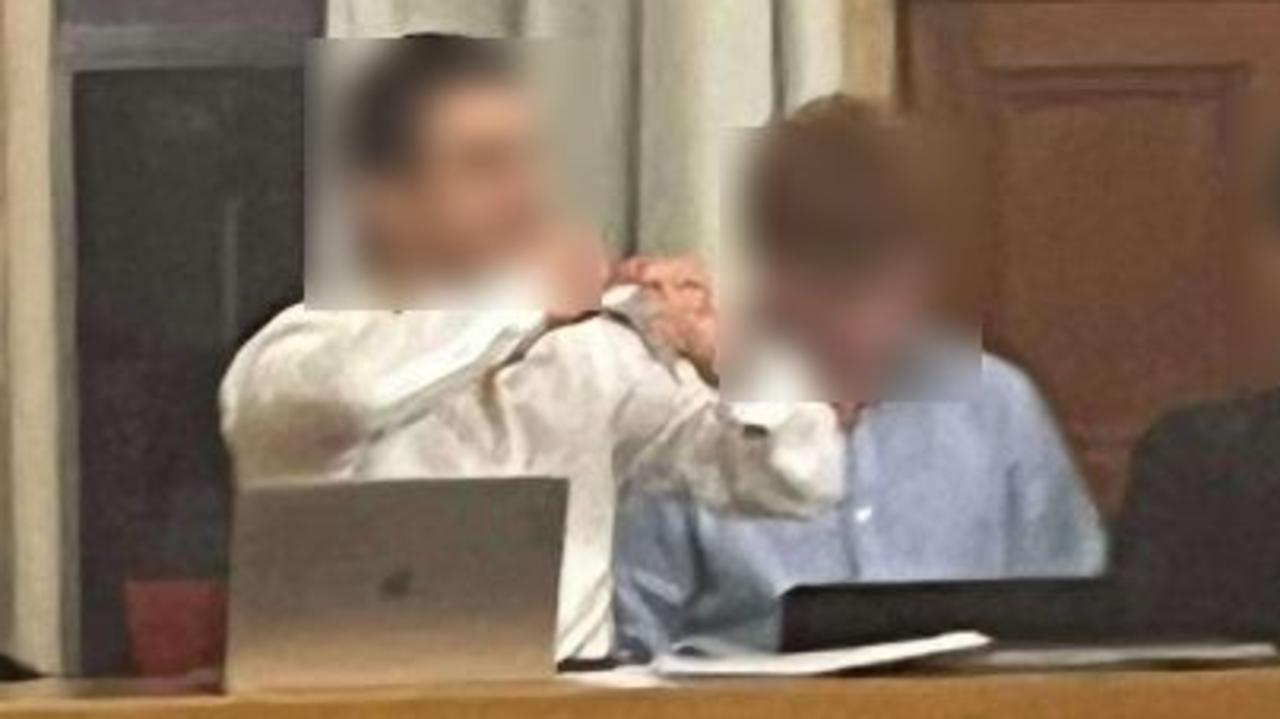Soldier’s eerie battlefield prediction comes true
When Curtis McGrath stepped on an explosive device in Afghanistan, rather than his thoughts turning to the end he made an eerie prediction.
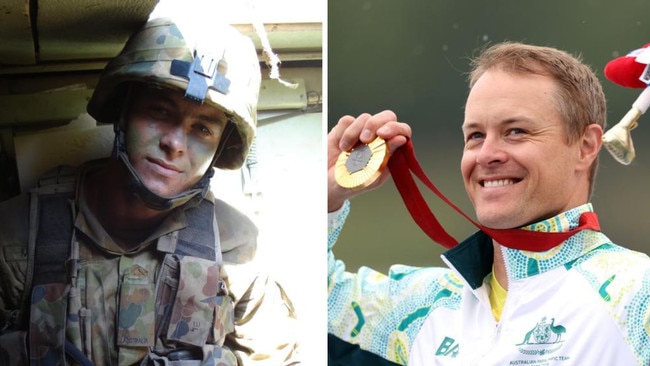
Real Life
Don't miss out on the headlines from Real Life. Followed categories will be added to My News.
“Even with your legs blown off, you don’t realise until it’s too late that you’re in a really dangerous and precarious position,” says combat engineer-turned Paralympic gold medalist Curtis McGrath, in his trademark stoic manner.
“Your life’s literally hanging on the seconds that it takes to get a chopper to you and then back to the doctors, and only upon reflection do you realise that you are actually incredibly lucky to be alive.”
It was 2012 when Curtis found himself in this precise life-altering situation, when – serving with the Australian Army in Afghanistan, he stepped on a mine.
“Our role was searching for improvised explosive devices (IEDs),” he explains. “The area we were patrolling was quite a dangerous area, and we knew that there was a lot of IEDs around, and we found a few on the way in. In hindsight, it’s not surprising what happened.
“It was a matter of when - not if - that’s the situation. And unfortunately, my foot was the one that landed on the pressure plate that triggered the IED. Obviously it went off, and blew up both my legs.”
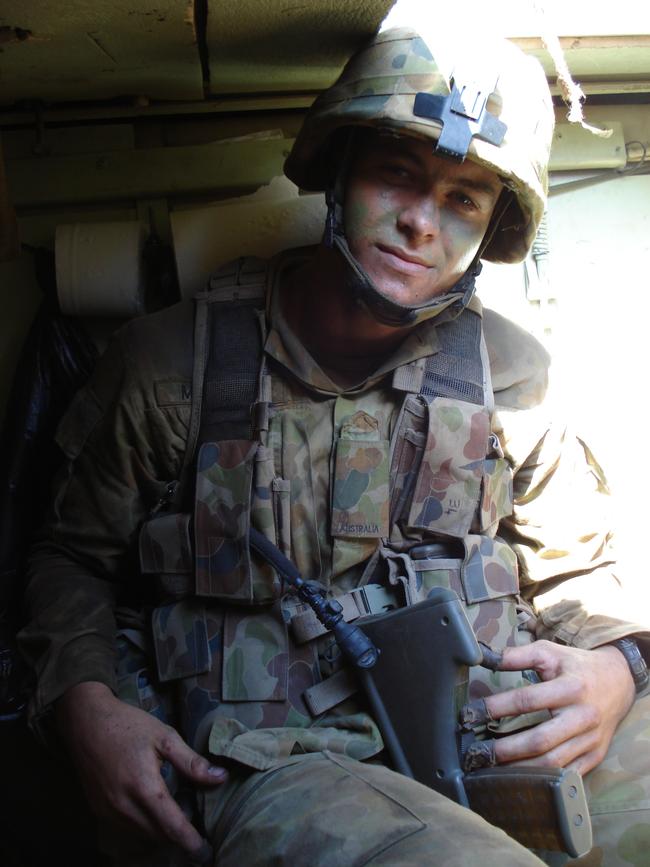
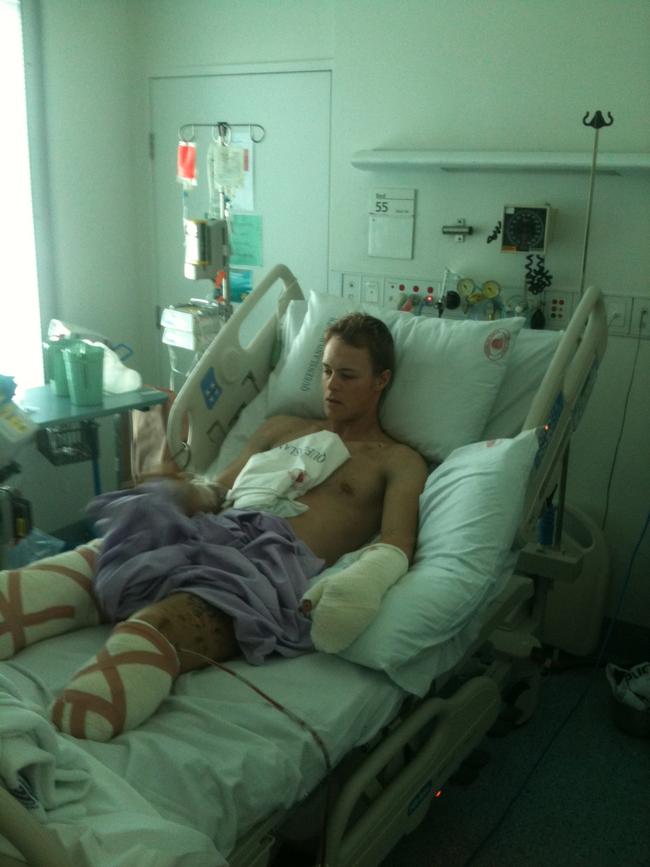
Despite the fact that, when medics got him onto a stretcher to be choppered out for treatment, he was battling significant blood loss and pain, Curtis made a quip to his fellow servicemen that would prove to be eerily prophetic.
He told them not to worry - he’d be back to represent the country in the Paralympics.
“It was more like a promise of hope,” he says. “Because I was aware that the trauma that I was going through was their trauma, too, the guys that were with me. When something like that happens, you know, it’s not just the one person that’s physically injured, there’s a whole, rippling effect through the people around you.”
Remarkably, in the midst of his own trauma, it was making sure his mates were OK that was Curtis’ primary concern.
“I could hear people were upset. So, you know, it was more about trying to be optimistic,” he said. “And I don’t think there’s anything else to it - it was just about trying to keep the mood happy and keep the optimism going, because it was pretty dire, and people were aware of that. I strongly believe that if it was someone else that was laying on the stretcher, and I was carrying them and treating them however, they would also have the same banter.”
Reflecting, Curtis says he probably didn’t comprehend the enormity of the situation right at that moment. That realisation came later - in what the Paralympian describes as a “dark day”.
“To me, my reaction in that immediate moment was just me doing my job, implementing my training in a sort of automatic way. The resilience I realised that I required later on was when I was in hospital, understanding that I was now a disabled person and the impacts and the flow-on effects that one incident will have on the rest of my life. It was probably a couple of weeks later, and man, that was a dark day.”
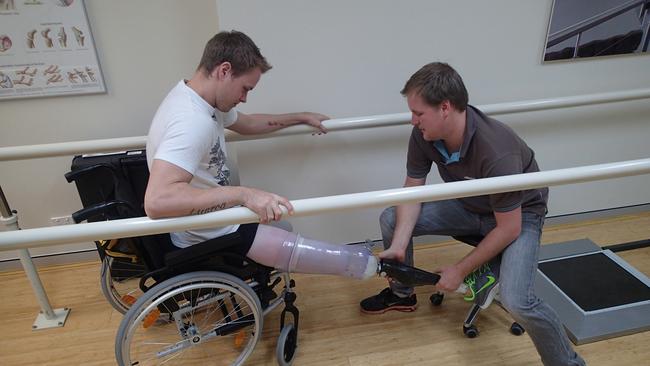
It was six months later, at the Marine Trial Games, where, having thrown himself into a number of sports as part of his rehab, Curtis encountered other veterans with experiences similar to his own.
“Before then, I’d not met anyone or really talked to anyone face-to-face who had been through the same situation as me,” he recalls.
“So being exposed to disability sport and veteran sport was really empowering, and it made me realise that there was a big potential out there.”
After trialling a few sports, Curtis discovered Para Canoe - something he immediately loved.
Talent developers from the Australian team identified a well of potential in Curtis, which set him down the path towards a new challenge: part rehab, part re-imagining.
“As I progressed into the system, I realised this was a pretty cool opportunity that I’d been given. I was super keen to see how far I could go, and it was more just to see how far I could go, and to prove I’m still me, I’m still Curtis, and I still enjoy sport and being outdoors and being part of a sports team.”
Four years after his injury, won his first Paralympic gold medal in Rio.
The feeling, he says, was not at all what he expected.
“I was expecting the joy and celebration that you would expect from anyone winning gold,” he says. “But when I crossed the line, I was like, thank God that’s over! That was a trip, and I’m so tired.”
It wasn’t until later, at his medal ceremony, that the weight of his achievement set in.
“You know, I wanted to go in there and do well, and not just for me, but for my team that got me out of the battlefield in Afghanistan, and my family and every other person that supported me along that way. And it was a really special moment to cross the line and realise I’d done it all and achieved that,” he says. “Standing up there on the podium, that was a really special moment.”
It was a moment, happily, Curtis would be able to relive more than once. He went on to win gold at Tokyo in 2021, and again in Paris this year.
“I’m lucky that I seem to have found a sport I’m good at, and I’ve learnt a lot about myself along the way,” says Curtis.
And for anyone else who might be staring down the battle of a challenge they don’t know how to get to the other side of?
“Get comfortable being uncomfortable,” he says.
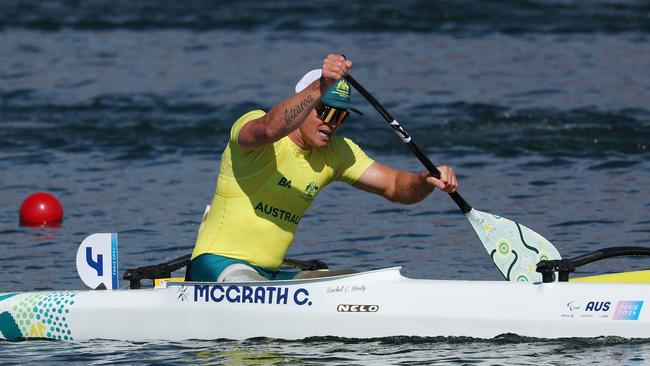
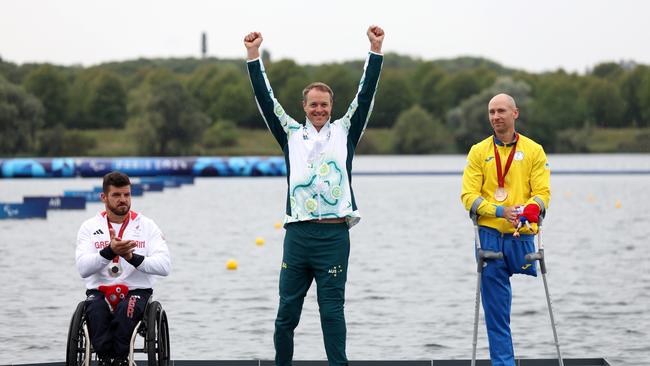
“We never really get better by winning all the time. I truly believe that you learn your biggest lessons when you lose, and by being in difficult situations. It might be hard, you might have a few failures. And I’m not talking about coming second as opposed to first. I’m talking about the daily little grinds.
“You know, the training, the technique didn’t go quite right in that session, or you’ve made the wrong choice on an investment, or you’ve made the wrong choice in life, and you pick the wrong subject, or whatever it might be.
“Sometimes there’s no light in the tunnel, but perseverance is a great substitute for talent. Push through, come out the other side and you’ll be a bigger, better person for it.”
Originally published as Soldier’s eerie battlefield prediction comes true


